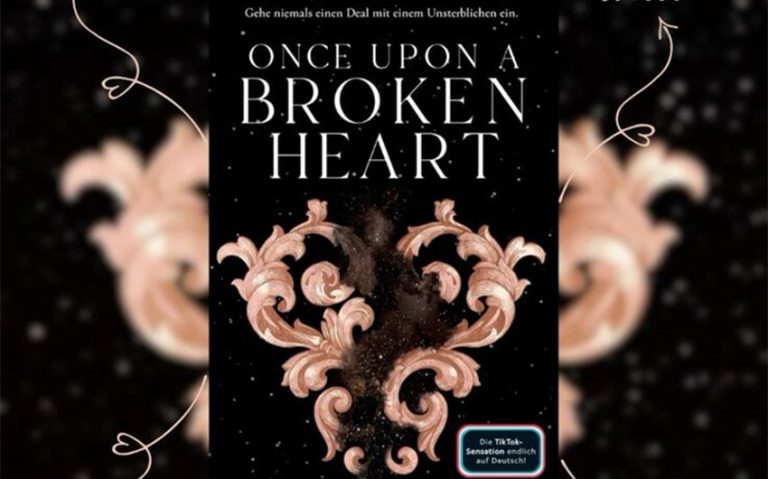116 Japanese Boy Names Meaning Light and Their Meanings
Choosing the perfect name for a child is a beautiful journey, especially when it holds a meaning close to the heart. In Japanese culture, names that mean “light” symbolize hope, warmth, and positivity—qualities many parents wish to inspire in their child.
Whether you’re drawn to a name for its brightness, elegance, or the sense of calm it brings, there are countless inspiring choices rooted in this tradition. For those looking for a name with a special glow, here are some meaningful Japanese boy names meaning light.
Popular Japanese Boy Names Meaning “Light”

Japanese names like “Hikaru” and “Akira” have long captured the spirit of light, bringing a sense of brightness and clarity. Let’s explore these popular names that embody illumination, hope, and wisdom, making them timeless choices for boys.
- Hikaru (光) – Directly translating to “light” or “shine,” this name symbolizes brightness and energy, making it a popular choice in Japan.
- Akira (明) – Meaning “bright” or “clear,” Akira is often associated with intelligence and wisdom, reflecting clarity in thought and purpose.
- Kō (光) – Another direct translation for “light,” Kō is commonly used in compound names, emphasizing illumination or a radiant presence.
- Teru (輝) – This name means “to shine” or “radiant,” symbolizing someone who brings brightness to others.
- Haru (晴) – While “Haru” can mean “clear” or “sunny,” it’s often associated with the light of a bright day, embodying warmth and optimism.
- Kiyoshi (清) – Meaning “pure” or “clear,” Kiyoshi conveys a gentle and calm light, symbolizing purity and integrity.
- Mitsu (光) – This name means “light” and can imply a quiet, steady glow, representing a balanced and warm nature.
- Raito (雷斗) – Derived from the English “light,” Raito is a modern and stylish name, symbolizing brightness with a unique twist.
- Yō (陽) – Meaning “sun” or “positive,” Yō reflects warmth and optimism, often associated with the light and energy of the sun.
- Hikari (光) – Meaning “light” or “radiance,” Hikari is a gentle and classic choice, symbolizing a luminous personality.
- Tomohiro (智宏) – Combining “wisdom” (智) and “vast” (宏), this name suggests an expansive light of intelligence and insight.
- Asahi (旭) – Meaning “morning sun,” Asahi symbolizes the warmth and new beginnings associated with sunrise, representing hope and renewal.
- Yūki (勇輝) – Combining “courage” (勇) and “shine” (輝), Yūki means a bright and brave presence, one who stands out with confidence.
- Daiki (大輝) – Meaning “great radiance” or “big light,” Daiki suggests a strong, grand presence and a life filled with positivity.
- Noboru (昇) – Translating to “rise” or “ascend,” Noboru represents the light of dawn, symbolizing growth and a bright future.
- Keisuke (圭輔) – A compound name where “Kei” can mean “brightness,” Keisuke is often associated with a bright and noble spirit.
- Takaaki (隆明) – Meaning “high brightness,” Takaaki is a name that conveys a sense of elevated radiance or noble light.
- Shō (昭) – Meaning “shining” or “bright,” Shō symbolizes a light that stands out and brings clarity to others.
- Hideaki (秀明) – Combining “excellent” (秀) and “bright” (明), Hideaki represents a distinguished and enlightened character.
- Akaru (明る) – Meaning “bright,” Akaru embodies lightheartedness and a warm, cheerful personality.
- Haruki (陽希) – Meaning “sunlight” or “radiance,” Haruki reflects warmth and brightness.
- Kōsuke (光介) – Combining “light” (光) and “help” (介), Kōsuke represents a supportive and illuminating personality.
- Masahiro (正弘) – Meaning “bright and wide,” Masahiro symbolizes a grand and positive presence.
- Tōru (徹) – Meaning “clear” or “penetrating light,” Tōru suggests someone with insight and clarity.
- Mitsuo (光雄) – Combining “light” (光) with “hero” (雄), Mitsuo represents a brave, radiant spirit.
- Nobuaki (信明) – Meaning “faithful and bright,” Nobuaki symbolizes a trustworthy and enlightening character.
- Hiroaki (博明) – Combining “broad” (博) with “brightness” (明), Hiroaki suggests a wise and far-reaching light.
- Shigenobu (重信) – Combining “weight” (重) with “faith” (信), Shigenobu signifies a solid, dependable light.
- Tetsuya (哲也) – Meaning “wise and bright,” Tetsuya is often associated with intelligence and insight.
- Yasuhiko (康彦) – Meaning “healthy brightness,” Yasuhiko conveys vitality and a positive presence.
- Yoshihiro (義弘) – Meaning “righteous light,” Yoshihiro combines “righteous” (義) with “wide brightness” (弘).
- Nobuyuki (信行) – Combining “faith” (信) and “happiness” (行), Nobuyuki symbolizes a joyful and bright nature.
- Masaru (勝) – Meaning “victorious,” Masaru suggests a bright future full of success.
- Hiroki (弘樹) – Combining “vast” (弘) with “tree” (樹), Hiroki symbolizes strength and expansive brightness.
- Akihiko (昭彦) – Combining “bright” (昭) with “boy” (彦), Akihiko represents youthful radiance.
- Shun (俊) – Meaning “talented,” Shun reflects a sharp, bright mind and clarity.
- Takashi (隆) – Meaning “prosperous,” Takashi implies a bright, thriving spirit.
- Hideo (英雄) – Meaning “heroic light,” Hideo reflects bravery and radiance.
- Toshio (俊雄) – Combining “talented” (俊) with “hero” (雄), Toshio represents a bright, heroic presence.
Unique Japanese Boy Names Meaning “Light”
For those looking for a more unique name, Japan offers many options that express light in creative ways. Names like “Asahi” and “Haruto” evoke the warmth of the morning sun and the spirit of new beginnings. These unique names have deeper meanings that celebrate a life filled with brightness.
- Haruto (陽翔) – A name that combines “陽” (sun) and “翔” (soar), Haruto evokes images of a bright, uplifting presence.
- Kohaku (光琥) – Combining “light” (光) with “琥” (amber), Kohaku symbolizes a valuable and warm glow, giving a rare, precious feel.
- Seiya (星夜) – Meaning “starry night,” Seiya has a mystical feel, representing the soft glow of starlight in the night sky.
- Yori (頼光) – From traditional Japanese roots, Yori can mean “reliable light” or “trustworthy glow,” suggesting dependability and warmth.
- Yūjirō (悠次郎) – Combining “悠” (distant or calm) with “次郎” (second son), Yūjirō evokes a calm and steady light, symbolizing patience and guidance.
- Kōhei (光平) – Meaning “light and peace,” Kōhei brings together brightness with a calm, balanced nature, suggesting a peaceful, illuminating presence.
- Arata (新) – Though commonly meaning “fresh” or “new,” Arata also suggests a fresh beginning or bright new light in someone’s life.
- Hotaru (蛍) – Meaning “firefly,” Hotaru symbolizes a delicate light in the darkness, offering a poetic and gentle take on illumination.
- Mizuki (光希) – A unique combination of “light” (光) and “hope” (希), Mizuki suggests an optimistic and bright future.
- Ayato (彩人) – Meaning “colorful person,” Ayato can also reflect a lively, bright personality, radiating vibrancy and life.
- Yūta (悠太) – With “悠” meaning “distant” or “calm,” and “太” (big or great), Yūta has a soothing, steady brightness.
- Tomoki (智輝) – A name that combines “wisdom” (智) and “shine” (輝), Tomoki reflects an enlightened and radiant spirit.
- Sora (空) – Meaning “sky,” Sora captures the boundless brightness and openness of the heavens, representing freedom and light.
- Masaki (昌輝) – Meaning “prosperous light,” Masaki suggests a thriving presence with a warm, shining aura.
- Kenta (健太) – Combining “健” (healthy) and “太” (big or great), Kenta represents strength and brightness in a nurturing way.
- Rikuo (陸央) – Meaning “central land,” Rikuo implies a solid foundation with a sense of brightness and grounding.
- Kōta (光太) – Meaning “big light,” Kōta symbolizes a strong, steady source of radiance and warmth.
- Itsuki (樹) – Although Itsuki often means “tree,” it represents strength and stability, with an inner brightness.
- Kazuya (一矢) – Combining “one” (一) and “arrow” (矢), Kazuya can imply directness and clarity, symbolizing light.
- Naoki (直輝) – Combining “honest” (直) and “radiance” (輝), Naoki suggests a straightforward, bright personality.
- Tatsuki (竜輝) – Meaning “dragon light,” Tatsuki evokes power and a unique radiance.
- Manabu (学) – Meaning “studious light,” Manabu symbolizes wisdom and enlightenment.
- Atsushi (敦) – Meaning “kind-hearted light,” Atsushi conveys warmth and generosity.
- Hayato (隼人) – Symbolizing the swiftness and lightness of a falcon, Hayato suggests agility and brightness.
- Shizuka (静香) – Meaning “quiet light,” Shizuka conveys a calm, gentle radiance.
- Chikaru (千軽) – Meaning “thousand lights,” Chikaru symbolizes abundance and brilliance.
- Reiji (礼二) – Meaning “grateful light,” Reiji reflects respect and a sense of inner illumination.
- Haruna (陽菜) – Combining “sun” (陽) and “greens” (菜), Haruna has a fresh, bright energy.
- Yukito (雪人) – Meaning “snow person,” Yukito implies a pure, calm light.
- Chikara (力) – Meaning “strength,” Chikara symbolizes the steady light of resilience.
- Aran (阿蘭) – A unique name meaning “orchid,” Aran symbolizes beauty and soft light.
- Makoto (真) – Meaning “truth,” Makoto implies clarity and a straightforward light.
- Kaoru (薫) – Meaning “fragrance,” Kaoru conveys a gentle, subtle light.
- Yōhei (洋平) – Meaning “ocean peace,” Yōhei reflects a peaceful and expansive light.
- Michio (道夫) – Meaning “path man,” Michio represents a guiding light along a journey.
- Isamu (勇) – Meaning “courage,” Isamu suggests a strong, unwavering light.
- Katsumi (勝美) – Meaning “victorious beauty,” Katsumi embodies a winning, radiant presence.
Rare and Modern Japanese Boy Names Meaning “Light”

Some parents may seek names that balance rarity with modern appeal. Japanese names like “Kohaku” and “Seiya” are less common but hold a captivating charm. They provide a fresh take on light-related meanings, often combining traditional elements with contemporary sounds.
- Riku (陸) – Meaning “land” or “shore,” Riku symbolizes stability and calmness, with the metaphorical light of groundedness.
- Hinata (日向) – Meaning “sunny place,” Hinata reflects a bright, warm personality associated with the light and energy of the sun.
- Sakuya (咲夜) – Combining “bloom” (咲) and “night” (夜), Sakuya represents the soft light that blooms even in darkness, a symbol of resilience.
- Kōki (光希) – This modern name combines “light” (光) and “hope” (希), evoking an optimistic and radiant future.
- Raiden (雷電) – Meaning “thunder and lightning,” Raiden signifies powerful energy and a dynamic presence, like the light from a lightning storm.
- Ritsu (律) – Meaning “law” or “rhythm,” Ritsu suggests a balanced light, representing harmony and steadiness.
- Shion (紫苑) – Derived from a flower, Shion symbolizes a soft, natural light and beauty, representing gentleness and grace.
- Sōma (颯真) – Combining elements of “swift” (颯) and “true” (真), Sōma conveys a bright, genuine spirit.
- Taiga (大河) – Meaning “big river,” Taiga symbolizes a steady, flowing light, often associated with strength and continuity.
- Reon (玲音) – A unique name combining “clear” (玲) and “sound” (音), Reon has a modern feel, representing clarity and an illuminating personality.
- Subaru (昴) – Meaning “Pleiades” or “a cluster of stars,” Subaru represents a star-like, guiding light, often seen as a symbol of direction.
- Kaito (海斗) – With “sea” (海) and “big dipper” (斗), Kaito represents the light of stars above the ocean, symbolizing exploration and depth.
- Reiya (礼夜) – Meaning “courteous night,” Reiya suggests a calm, soothing light in the darkness, conveying peace and respect.
- Eita (英太) – Combining “excellent” (英) and “big” (太), Eita implies a bright, distinguished presence.
- Natsuki (夏輝) – Meaning “summer radiance,” Natsuki evokes the brightness and warmth of the summer sun, reflecting joy and vitality.
- Hiroto (大翔) – Combining “big” (大) and “soar” (翔), Hiroto suggests a strong, bright spirit with a sense of ambition and reach.
- Ren (蓮) – Meaning “lotus,” Ren symbolizes purity and enlightenment, similar to light emerging from muddy waters.
- Shōma (翔馬) – Combining “soar” (翔) and “horse” (馬), Shōma represents freedom and brightness with a sense of strength.
- Kiyoto (清人) – Meaning “pure person,” Kiyoto embodies a clear, shining character, often associated with honesty and warmth.
- Sorata (空太) – With “sky” (空) and “big” (太), Sorata symbolizes the vast, open brightness of the sky, suggesting freedom and expansiveness.
- Jiro (次郎) – Meaning “second son,” Jiro is associated with a steady, supportive light.
- Tamaki (環) – Meaning “circle” or “ring,” Tamaki represents completeness and harmonious light.
- Fumio (文雄) – Meaning “scholarly light,” Fumio implies wisdom and enlightenment.
- Kazuhiro (和博) – Combining “harmony” (和) and “brightness” (博), Kazuhiro suggests balanced radiance.
- Naoya (直哉) – Meaning “straight and open light,” Naoya conveys honesty and brightness.
- Daisuke (大輔) – Meaning “great helper,” Daisuke symbolizes a warm, supporting presence.
- Hiroshi (宏) – Meaning “generous brightness,” Hiroshi suggests an open, radiant personality.
- Jotaro (丈太郎) – Meaning “lengthy light,” Jotaro represents endurance and strength in brightness.
- Masato (正人) – Meaning “righteous light,” Masato reflects integrity and an illuminating spirit.
- Kazuto (一人) – Meaning “unified light,” Kazuto represents harmony and collective brightness.
- Kengo (健悟) – Meaning “healthy wisdom,” Kengo represents a steady and thoughtful light.
- Minato (港) – Meaning “harbor,” Minato suggests a guiding light, like a lighthouse.
- Satoru (悟) – Meaning “enlightenment,” Satoru embodies clarity and a deep, inner light.
- Takuto (拓人) – Meaning “pioneer,” Takuto symbolizes an adventurous, forward-moving light.
- Rintaro (倫太郎) – Meaning “ethics” and “boy,” Rintaro represents a morally bright character.
- Tsukasa (司) – Meaning “director” or “governor,” Tsukasa implies a guiding, responsible light.
- Yukiya (雪哉) – Combining “snow” (雪) and “to be” (哉), Yukiya represents purity and calm light.
- Yūto (優人) – Combining “gentle” (優) and “person” (人), Yūto has a soft, gentle brightness.
- Ryuto (竜斗) – Combining “dragon” (竜) with “big dipper” (斗), Ryuto reflects strength and a radiant presence.
- Aoto (蒼斗) – Meaning “blue light,” Aoto symbolizes a cool, calm brightness.







